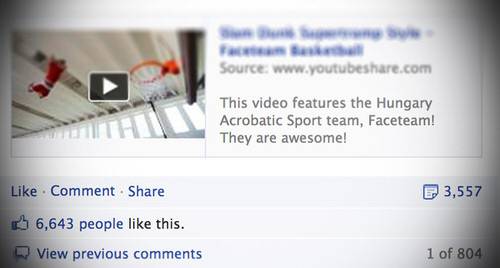
It’s taken for granted these days that if you run a business, you need to be on Facebook. And while any monkey can click the “Create Page” button, it takes a smart strategy to wind up with the kind of Facebook numbers that are truly brag-worthy.
Of course, it doesn’t hurt to be a huge corporation with major brand recognition. But size doesn’t necessarily translate into a solid Facebook presence, either. Heck, the biggest tech company of all apparently doesn’t even need Facebook to succeed. Other than for iTunes, Apple doesn’t maintain any official corporate presence on Facebook.
Of those tech giants that do, some are doing a better job than others. Using a mix of metrics and subjective observations, we’ve rounded up five of the savviest tech giants on Facebook. These are by no means the only good examples (and plenty of smaller companies have better, more personable and more creative presences on Facebook), but it’s hard to argue with hard numbers.
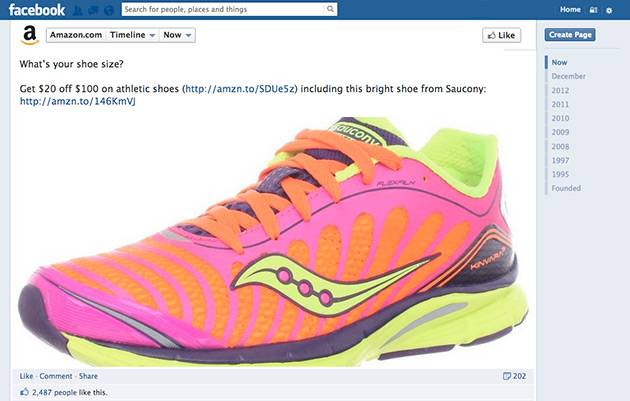
5. Amazon
It comes as no shock that Amazon has 16 million fans on Facebook. The e-commerce giant sells a ton of things to a ton of people every day, so of course it has a strong presence on the world’s biggest social network. But it’s not just that Amazon has a lot of fans. It’s actually doing a pretty decent job of engaging those fans, despite the occasional corny pun or spam commenter. (A user called “Kindle Fire Giveaway” sure does chime in a lot.)
With an inventory as infinite as Amazon’s, it can be hard to know which items to promote. To avoid spamming millions of people with irrelevant products, it tends to choose general-interest items and use Facebook to publicize special sales. Amazon also asks a lot of questions, which is an effective – if patently obvious – way to drive up comments.
On any given day, about half a million people are talking about Amazon on Facebook, according to AppData. It’s the fourth most-liked page for a retail company (followed by Walmart, Target and Converse), but it’s growing much faster than all of those pages, adding a quarter of a million new fans per week.
Link: Amazon on Facebook
Metrics: Amazon’s AppData stats
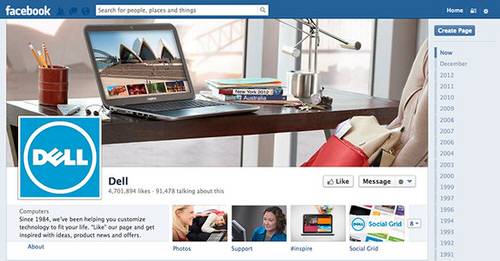
4. Dell
You may not think of Dell as all that sexy of a brand thes days, but it’s got the most-liked Facebook page in the Computers/Technology category. With nearly 5 million fans, it’s also one of the fastest-growing.
Dell’s Facebook page contains a lot of tacky self-advertising, but the PC vendor also mixes it up with links to “how-to” articles related to computing and technology. That can be pretty handy for the many people who need help with their technology purchases or experience problems down the line.
Dell also uses Facebook to administer customer support, which is either smart and proactive – or a response to getting lots of customer complaints via Facebook. An entire tab of the Dell Facebook page is dedicated to support, but the company might want to pay more attention to the comments under each post, where frustrated users sometimes chime in with tech-support problems.
Link: Dell on Facebook
Metrics: Dell’s AppData stats
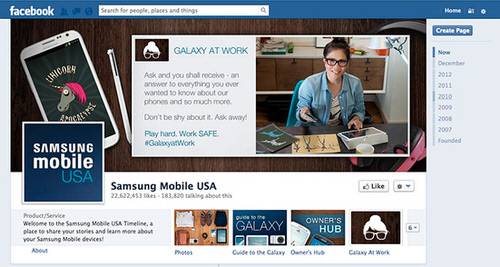
3. Samsung Mobile USA
Like Dell, Samsung Mobile is such a ubiquitous tech brand that you’d pretty much expect it to have a ton of Facebook fans. And at 22 million likes, it certainly does. But the company also takes its social media management seriously, and it shows.
Negative comments often create awkward moments on a brand’s Facebook page. While Samsung Mobile’s page isn’t flooded with complaints, when one shows up, Samsung’s community manager responds diplomatically, usually pointing the customer toward some solution or alternative. It gives you the sense that the smartphone vendor is in control of the way its brand is represented online, rather than just letting the trolls and spam fester.
A lot of Samsung Mobile’s posts are basically glorified print advertisements for its line of Galaxy mobile devices and other products. But rather than just saying “buy this gadget,” the images tend to show a particular product being used for a specific purpose. Sounds simple, but it’s pretty effective. Without having used one myself, it wasn’t obvious to me that the Samsung Galaxy Note 2 lets you take notes and watch a YouTube video simultaneously. Thanks to Samsung’s Facebook page, now I know.
Link: Samsung Mobile USA on Facebook
Metrics: Samsung Mobile USA’s AppData stats
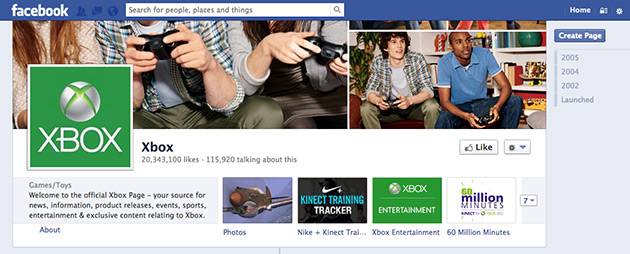
2. Microsoft (XBox)
Plenty of people find Microsoft to be easy to poke fun at, but you’ve really got to hand it to whoever’s managing the fan page for XBox. With 20 million likes, it has twice as many fans as Windows, the most widely used desktop operating system on the planet. Of course, it’s easier to love a gaming and entertainment console than it is to adore the software that powers your PC at work.
If social media is all about fostering community and dialogue, XBox has it nailed. The page routinely posts updates and teasers about new games, products and events, with many of its posts getting thousands of likes and dozens of shares. And the XBox team manages to do it without the crutch of inauthentic tricks (“Like this to show your support for XYZ!”) that often populate corporate Facebook pages.
Link: XBox on Facebook
Metrics: XBox’s AppData stats
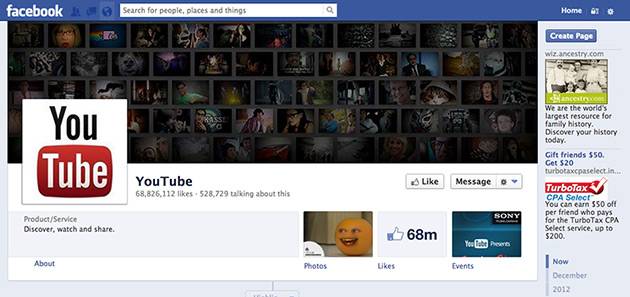
1. YouTube
Aside from Facebook itself, YouTube is the most beloved tech brand on the gargantuan social network. In fact, it’s the third most popular Facebook page overall.
In a way, though, YouTube’s Facebook page wins by default – it does eactly what everybody else on the Internet does: share YouTube videos. Hard to go wrong with that. When you like YouTube on Facebook, you get exactly what you expect: Viral videos. It’s light on the hackneyed marketing copy and heavy on the snowball fights, news bloopers and One Direction videos. So many One Direction videos.
The numbers speak for themselves. Each post yields thousands of likes and almost as many shares. That sharing metric is one of the toughest to drive for a normal brand on Facebook. For YouTube, it just comes naturally.
Link: YouTube on Facebook
Metrics: YouTube’s AppData stats
















